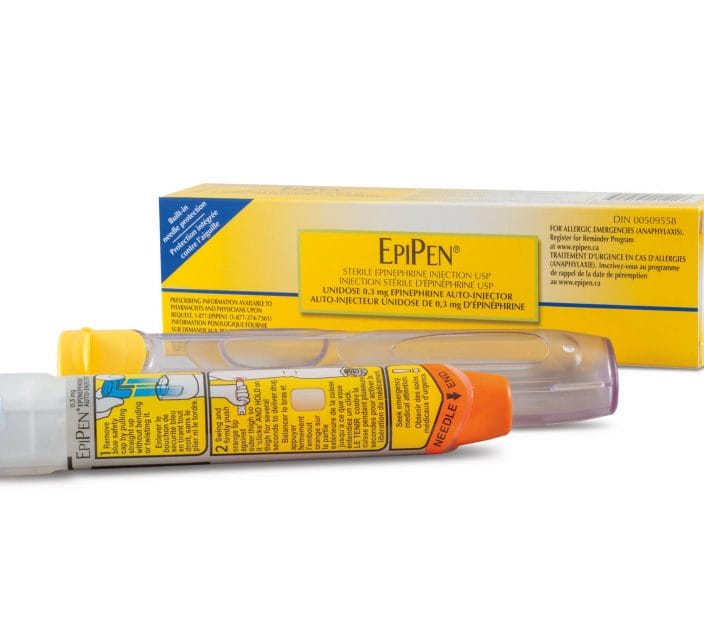 Natasha Ednan-Laperouse
Natasha Ednan-Laperouse Never again are we likely to look at longstanding loopholes in allergy labeling laws in the same fashion. We have learned the hard way that while countries enforce laws requiring the labeling of top allergens on packaged foods, freshly “pre-packaged foods” get a dangerous exemption.
It’s the same whether you’re in England, the United States, France, Canada or Spain. Loopholes in allergy laws give sandwich shops, grocery delis and in-store bakeries the right to forgo allergen labeling on or adjacent to freshly packaged foods. This is the case even if prepared off-the-premises.
The allergy information missing from the baguette sandwich Natasha ordered could have saved her life. As the inquest heard, the dough of that baguette she purchased from the Pret a Manger sandwich shop at Heathrow Airport contained sesame. She was severely allergic to it. But this fact wasn’t shown on the ingredients sticker that both she and her father read. Pret was following the “freshly made” food exemption.
London Coroner Dr. Sean Cummings questioned why a large food enterprise like Pret could qualify for such an exemption. He noted that it produced food in centralized kitchens with “over 200 million items for sale.” In the wake of Natasha’s tragic experience, England appears likely to show leadership – and soon – to close its allergy loophole. [Update: in June 2019, the U.K. passed Natasha’s Law, requiring all food ingredients on fresh pre-packaged foods to be labeled.]
The inquest also shone a light on the growing incidence of sesame reactivity, renewing a sense of urgency to have sesame added as one of the top allergens in the U.S. The tiny seed is already on the priority allergen lists in Europe, Canada and Australia. Adding that status in the U.S. would mean it could no longer be a hidden ingredient in packaged foods. Nor could it be lumped into catchall phrases like “natural flavors”.
Natasha succumbed to her catastrophic reaction to her sandwich while aboard a flight to France (she later died in hospital). In the view of Allergic Living, the inquest testimony also revealed the pressing need for generally improved airline readiness for anaphylaxis – from regular training for crews on emergency response protocols to the importance of having epinephrine auto-injectors available in the airplane medical kit.
Ending U.K. Allergy Loophole
With the inquest findings as support, Natasha’s grieving parents are campaigning in England for change to ensure labeling on all sold foods. They want an end to the allergy loophole for “freshly made foods”. Natasha’s father, Nadim Ednan-Laperouse, recently told the BBC he wants “to get justice for her death, justice for the future, that no one else should suffer such a needless and pointless death.”
Michael Gove, the British Secretary of State for Environment, Food and Rural Affairs, has spoken in favor of the changes the parents seek. He promises to move swiftly on the coroner’s request that his department take action.
Gove plans to bring food industry representatives and experts together for a review. “This tragic case highlights the importance of acting urgently,” he told a Daily Mail reporter. “We need to be sure that we act quickly so we can ensure we have the best possible protection in place. No one would want anything like what’s happened to Natasha’s family to happen to somebody they love.”
Since Natasha’s inquest, Pret a Manger is making major changes voluntarily to the way the company labels its freshly packaged foods. The grab-and-go sandwich chain has 530 locations in the U.K. It says that, starting in November, it will list all ingredients, including top allergens, on fresh foods prepared daily in its U.K. kitchens. The same protocols will be rolled out in Pret’s U.S. locations in early 2019.
During the inquest, a family lawyer called out Pret for the fact that the company had a log documenting a total of 21 allergic reactions to its food in the year before Natasha died in July 2016. Of these cases, nine related to sesame exposure.
One of those affected was New York City resident David Matt, who tried to sue Pret for his reaction to undeclared sesame in a baguette less than a year before Natasha’s fatal reaction. He was devastated to learn of her death recently through media coverage. (See Matt’s story here.) “I hope, unfortunately, this serves as a precedent in the U.S. and around the world,” he says.
Allergy Loopholes: More Tragedies
 Joanna Salmingo
Joanna Salmingo Joanna’s brother Joey Salmingo believes his younger sister would have ignored the lawyerly statement, and presumed the balls were made in the standard way: with glutinous rice dough covering ice cream. But the balls Joanna purchased were actually made with frozen cashew milk, not dairy milk, as a key ingredient. Joanna had a known allergy to nuts.
Salmingo, who has begun advocating for better food allergy education, managed to persuade Whole Foods to add labeling – and they’ve recently added full ingredients lists to individual mochi display trays across North America.
In 2015, Allergic Living’s editors had wondered if the “freshly made foods” exemption might be changed in the U.S. – since this allergy labeling loophole was at the center of an earlier tragedy, as well as a lawsuit. Derek Landon Wood, 11, died after eating a chocolate cookie his mother had purchased at Publix Super Market in Tennessee.
The boy’s mother says she was told by a clerk that the cookie did not contain tree nuts, when in fact it contained walnuts, to which the boy was severely allergic. But an undisclosed settlement was reached in the case, so the results of it were not made public – and much-needed change did not occur.
Actions to End Fresh Food Exemption
In selling fresh food products without ingredient labels, Pret a Manger and other establishments have not been breaking any laws. But the practice can be extremely dangerous, and public awareness of the allergy loophole appears spotty. During the inquest, Allergic Living heard from many readers who had not been aware that a wrapped fresh food purchased at an airport could show ingredient labels that were incomplete – and might not list allergens.
As Gove’s department looks to take action in England, Americans already have draft legislation that they can support – called the Food Labeling Modernization Act, which would require “non-packaged food available for sale at retail” to have adjacent, visible signage with allergens listed. Concerned readers can urge their Representative to support the bill known as HR 4917 (there is also a Senate bill).
Push for Sesame as a U.S. Top Allergen
FARE and the Asthma and Allergy Foundation of America (AAFA) are also urging the passage of this legislation for another reason – to finally make sesame the ninth regulated U.S. top food allergen, so that it must be declared on food packages. The push for that status is the other key element in the proposed Food Labeling Modernization Act.
[Update: In 2021, the separate FASTER Act was passed. One of its key provisions is adding sesame as the ninth top allergen that must be labeled.]
In a 2018 report about sesame allergen labeling, the food safety group the Center for Science in the Public Interest (CSPI) cited a survey of more than 50,000 U.S. households. The survey, conducted by pediatrician Dr. Ruchi Gupta and a team at Northwestern University, ranks sesame as the ninth most prevalent allergen after the eight most commonly diagnosed food allergens. The CSPI report also says more than 300,000 Americans live with a sesame allergy.
In the bigger picture, “food allergy is a growing public health issue,” notes Jen Jobrack, a consultant with Food Allergy Pros. “The more transparent and communicative a company can be about its ingredients, the better off everyone is,” she says.
Ultimately, regulation brings consistency. Natasha’s father called her inquest “a watershed moment.” It is time for the political will to effect change – and for food makers to assist in the effort.
Related Reading:
Natasha Inquest: Coroner Finds Inadequate Allergy Labeling Led to Teen’s Death
Natasha’s Law Passes: Our Interview with Mom Tanya Ednan-Laperouse
After Tragedy, Brother and Mother are on a Mission for Food Allergy Education
Allergy Death Lawsuit: Should Store Bakeries Have to Label





